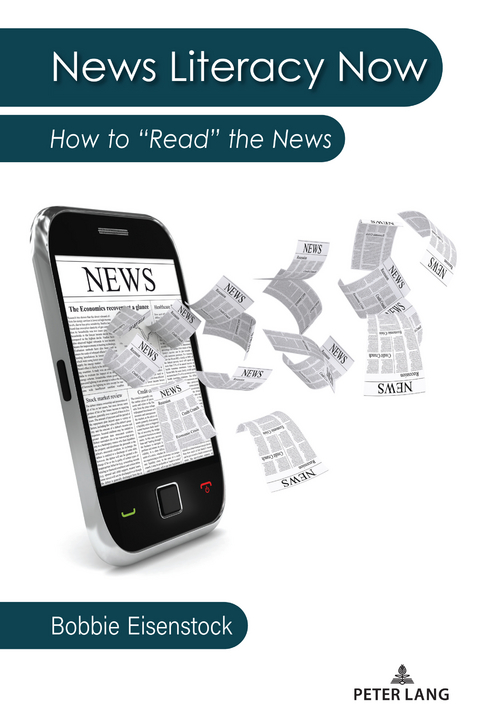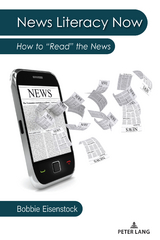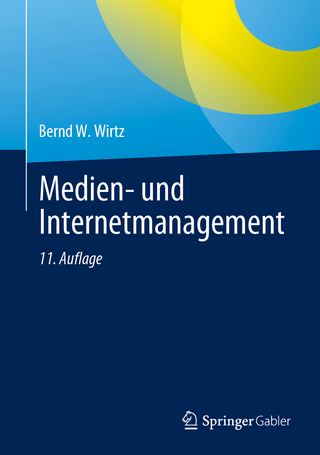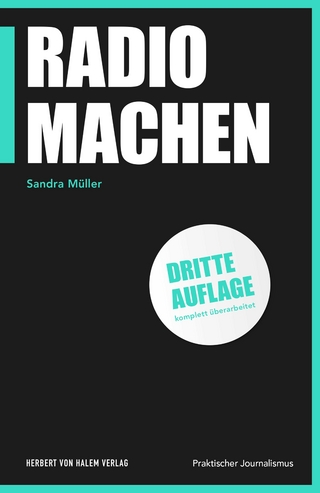News Literacy Now
Peter Lang Publishing Inc (Verlag)
978-1-63667-094-2 (ISBN)
Real news. Fake news. Alternative Facts. We are living in the Digital Age of Disinformation where factual news, opinion and disinformation exist side-by-side in the media culture. How do we know who and what to believe?
News Literacy Now introduces a new way to "read" the news. Based on the intersection of media literacy, news literacy, information and web literacy skills, this hybrid strategy adapts the media literacy framework developed by the Center for Media Literacy to analyze the nature of news, explain professional journalism practices and standards, and apply lateral reading to verify facts and empower informed participation in democracy.
Written in a Q and A format from the news consumers’ perspective, the book asks and answers questions to think critically about our personal news experiences, the news-gathering process, and the vital roles journalism and the First Amendment play in a democracy. It connects key concepts with strategies to deconstruct misinformation and disinformation that have weaponized falsehoods and disrupted the flow of trustworthy news.
Challenged by a news credibility crisis, news media literacy has never mattered more. What we need are skills to think like a journalist and search like a fact-checker. Whether you are a media literacy expert or newbie to media and news literacy, this book is essential for everyone who uses media—teachers and students from middle and high school to higher ed, parents and grandparents, media and youth advocates, and anyone who cares about living in a world where facts matter.
Bobbie Eisenstock (Ph.D., USC Annenberg School for Communication) is a media literacy educator and advocate. Her teaching and research intersect media and news literacy with community-engaged learning to educate and empower students to use their voice for personal and social change. She serves on the Board of Directors of the National Association for Media Literacy Education and was honored with their Elizabeth Thoman Service Award for her contributions to the field. Among her other honors are the National Eating Disorders Association Award for Activism and Advocacy and the Visionary Community Service-Learning Award from California State University, Northridge where she teaches in the journalism department.
Dear Reader
Acknowledgments
How to Read This Book
Chapter 1. YOU AND NEWS
How Do We Get News Literate?
Five Questions to Ask Ourselves about News
Read the Research
Chapter 2. WHY NEWS LITERACY MATTERS
Why Do We Need News Literacy Now?
How News Literate Are We? What the Research Says
Who Is a News Literate Person?
Where Do We Go from Here?
An Integrative News Media Literacy Framework
What’s Next?
Chapter 3. WHAT IS NEWS?
What is the Purpose of News?
What Makes News Reliable?
What Is the Fourth Estate?
What Is "Fake News"?
Ask the Right Questions: Purpose
Chapter 4. WHO WRITES THE NEWS?
Who Is a Journalist?
What Are the Different Types of Journalism?
If a Journalist Didn’t Write This, Then Who Did?
Ask the Right Questions: Authorship
Chapter 5. WHAT MAKES THIS STORY NEWSWORTHY?
Who Decides What Is News?
What Determines the Newsworthiness of a Story?
How is a News Story Constructed?
What are Journalism Story Techniques?
Ask the Right Questions: Format
Chapter 6. DO NEWS MEDIA TAKE SIDES?
Is News Objective?
How Is the Story Framed?
Is the Story Fair, Balanced or Biased?
Where’s the Evidence?
Whose "Fault" Is It?
Do News Media Take Sides or Not?
Ask the Right Questions: Content
Chapter 7. WHO’S YOUR GATEKEEPER?
Who Sets the News Agenda?
How Might Different People Understand the Same News Story?
Who’s Caught in the "Spiral of Silence"?
Who Is the "Third Person"?
Who Believes "Fake News"⸺Me, You or Them?
Ask the Right Questions: Audience
Chapter 8. DIGGING DEEPER
No More CRAAP!
How to Search Like a Fact-checker
How to Disrupt Disinformation
Types of Misinformation and Disinformation
Selected News Media Literacy Resources
A Final Word
"Eisenstock establishes a framework for judging information that is both intuitive and sophisticated, giving the user a playbook for determining the legitimacy of information. She validates readers' feelings that mis- and disinformation is on the rise, but never makes them feel hopeless. Instead, hers is an empowering message that we can—and should—use the right tools to fight misinformation and help others do the same."
—Barbara Allen, Director of College Programming, The Poynter Institute
"Finally, a practical approach to combining media literacy with news! This book gives a step-by-step guide to teaching about news through a media literacy lens, providing students and adults alike an accessible and deeper foundation for evaluating the quality and relevance of their media."
—Tessa Jolls, President and CEO of the Center for Media Literacy
| Erscheinungsdatum | 29.04.2023 |
|---|---|
| Zusatzinfo | 11 Illustrations |
| Verlagsort | New York |
| Sprache | englisch |
| Maße | 150 x 225 mm |
| Gewicht | 317 g |
| Themenwelt | Kinder- / Jugendbuch ► Sachbücher |
| Sozialwissenschaften ► Kommunikation / Medien ► Journalistik | |
| Sozialwissenschaften ► Kommunikation / Medien ► Medienwissenschaft | |
| Sozialwissenschaften ► Pädagogik | |
| ISBN-10 | 1-63667-094-6 / 1636670946 |
| ISBN-13 | 978-1-63667-094-2 / 9781636670942 |
| Zustand | Neuware |
| Haben Sie eine Frage zum Produkt? |
aus dem Bereich




